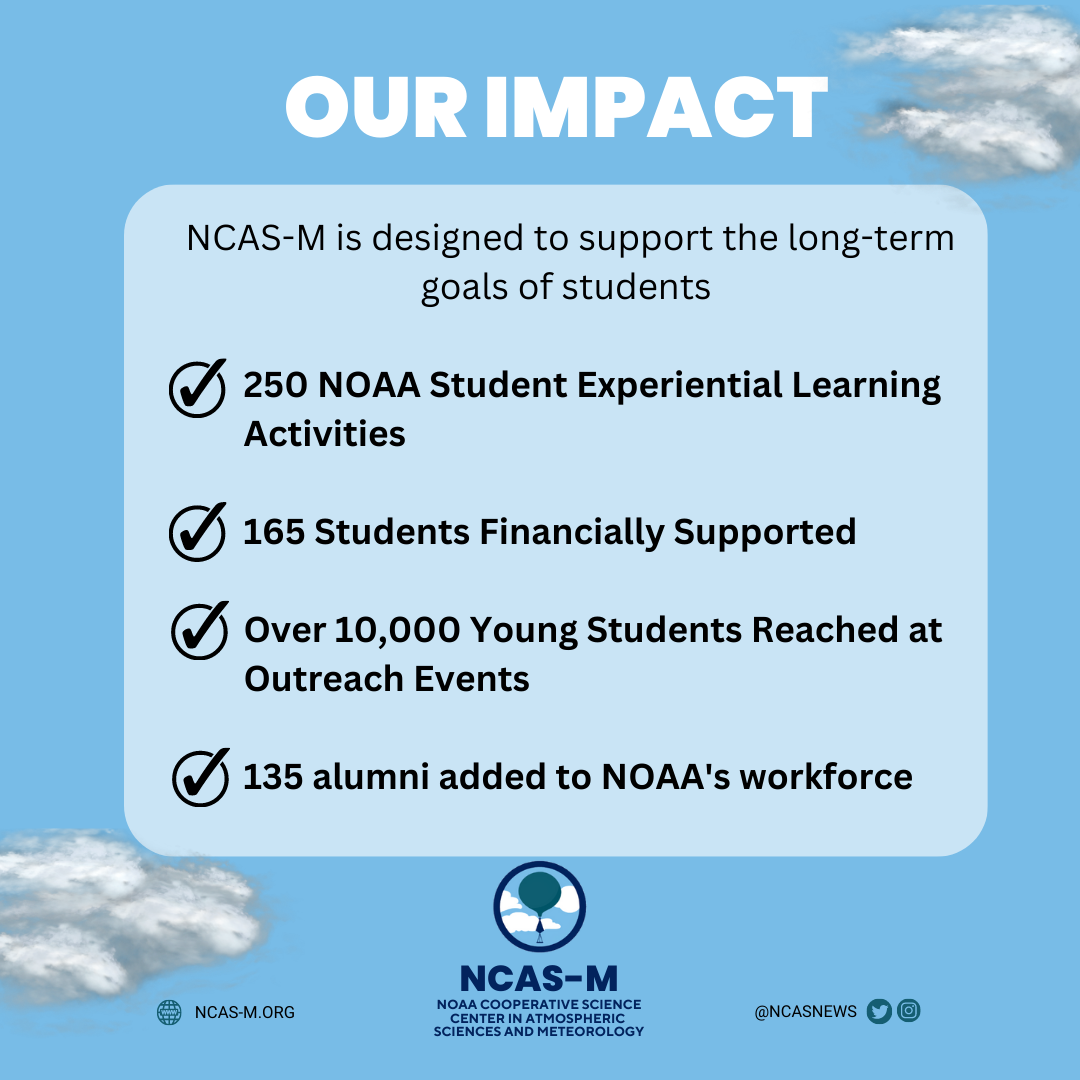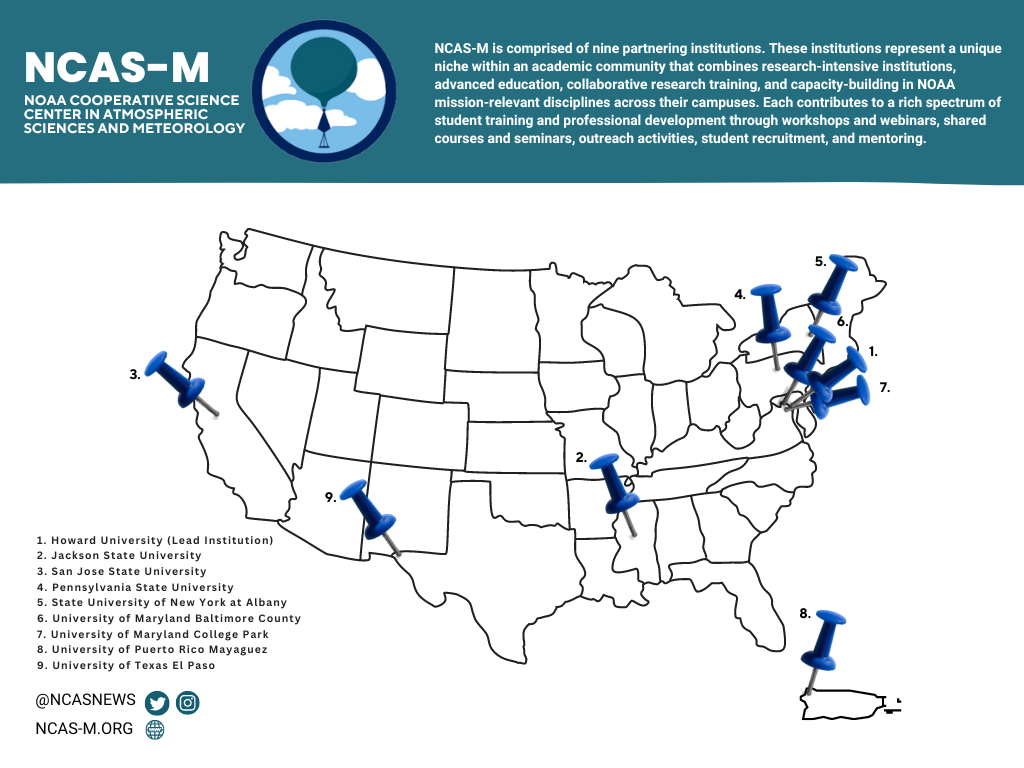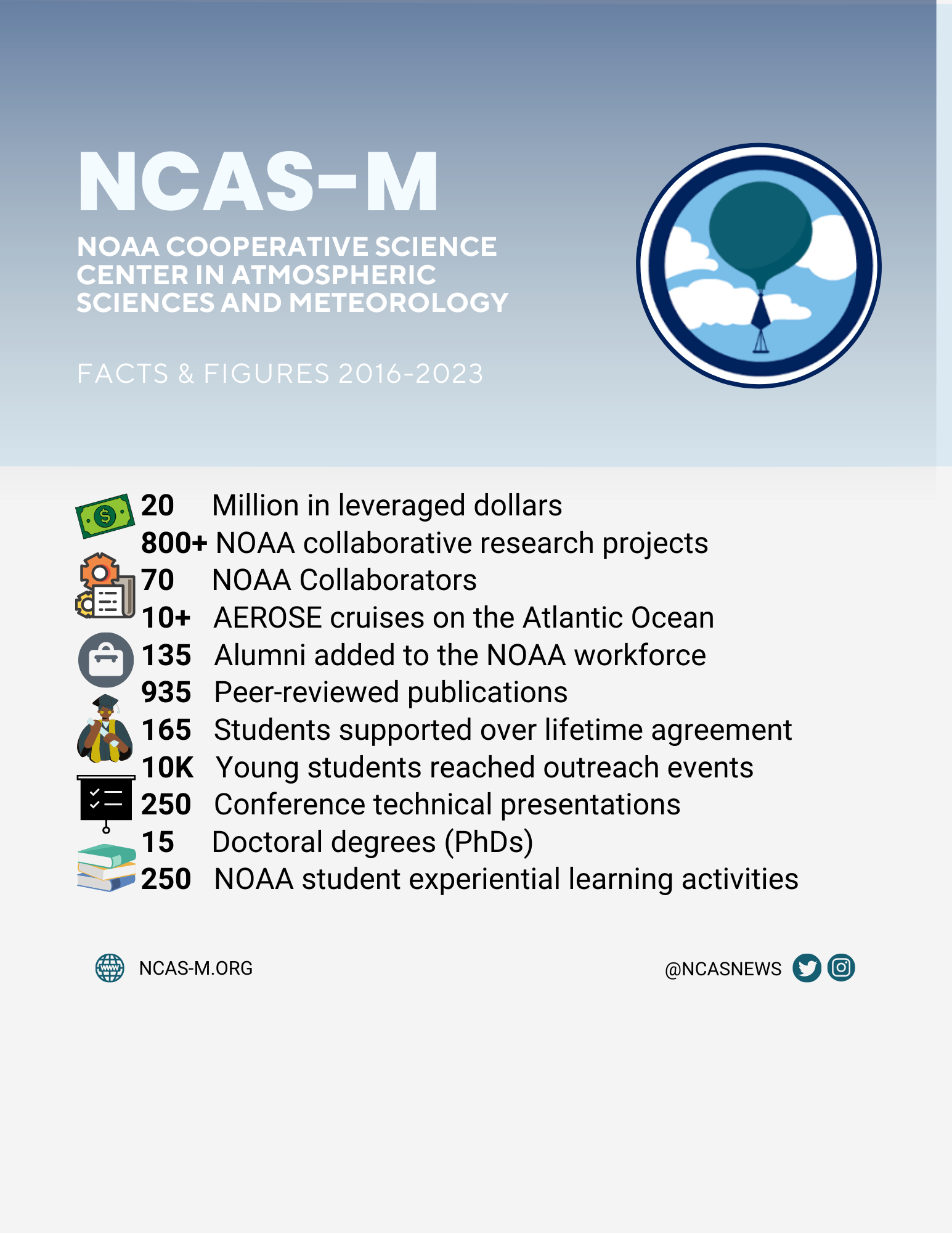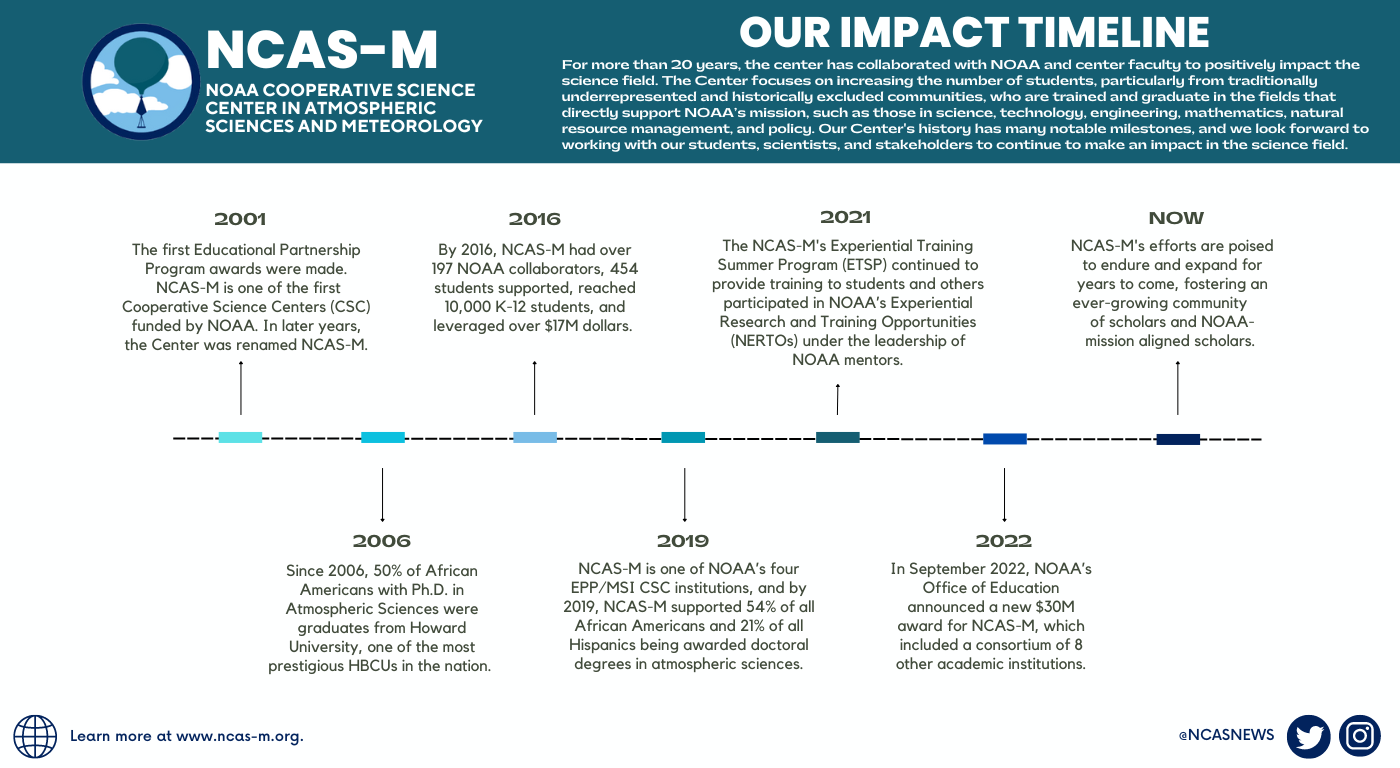NCAS-M
For more than 20 years, the NOAA Center for Atmospheric Sciences – Meteorology (NCAS-M), formerly NCAS, funded students from underrepresented communities whose educational efforts were focused on degrees aligned with NOAA’s mission, including those in STEM, natural resource management and policy fields. Focused on increasing the number of highly qualified, well-trained graduates ready to enter NOAA’s workforce, the Center’s dedicated higher education faculty and staff have worked to provide students with opportunities to conduct research, receive professional development and obtain career training. Funded for three consecutive cycles, our Center’s history has many notable milestones, such as:
- $20 million in leveraged dollars,
- 800+ NOAA collaborative research projects,
- 70 NOAA collaborators,
- 10+ AEROSE cruises on the Atlantic Ocean,
- 10 alumni added to NOAA’s workforce,
- 935 peer-reviewed publications,
- 165 students supported over three funding cycles,
- 10K young students reached during outreach events,
- 250 conference technical presentations,
- 15 doctoral degrees (PhDs) supported, and
- 250 NOAA student experiential learning activities.
NCAS
In September 2001, NCAS was one of the first to be awarded a cooperative agreement from the Department of Commerce’s Educational Partnership Program (EPP). At the time, the grant allowed for the support of four minority-serving institutions (MSI), Howard University, Jackson State University, University of Puerto Rico at Mayagauez and the University of Texas at El Paso, as well as two majority universities, which were the University of Maryland College Park and State University of New York at Albany. Since its initial funding, the Center has included a total of 13 academic institutions. As of September 2022, there are nine institutions, which are in bold below. Regardless of the grant cycle, each institution represented a unique niche within the academic community that combines research-intensive activities, advanced STEM education, collaborative research training, and capacity-building in NOAA mission-relevant disciplines across their campuses. Each contributed to a rich spectrum of student training and professional development through workshops and webinars, shared courses and seminars, outreach activities, student recruitment and mentoring.
- Howard University (Lead)
- Jackson State University
- Pennsylvania State University
- San Jose State University
- State University of New York at Albany
- University of Maryland College Park
- University of Maryland Baltimore County
- University of Puerto Rico Mayaguez
- University of Texas El Paso
- Tuskegee University
- Fort Valley State University
- Universidad Metropolitana
- San Diego State University
More Information on NCAS & NCAS-M
To learn more about the impact of NCAS and NCAS-M over the years, visit NOAA’s official EPP/MSI page, follow us on social media, listen to our special podcast episode dedicated to reviewing our impact and explore the links below.
Alumni
NCAS-M supported nearly 200 fellows and interns.
Publications
NCAS-M supported nearly 100 publications that contributed to the fields of Atmospheric Sciences and Meteorology.







